- Daily & Weekly newsletters
- Buy & download The Bulletin
- Comment on our articles
'We will make it through this': How Brussels is coping with the coronavirus measures
The telephone doesn’t stop ringing at Vivre Chez Soi, a domestic care provider for the elderly in Watermael-Boitsfort. Caregivers were called into an extraordinary meeting on Friday morning. Along with the wider medical profession, Vivre Chez Soi will have a special role to play in protecting the most vulnerable people against coronavirus.
Worried beneficiaries want to know if they can still count on someone helping with the housework, the grocery shopping, the daily hygiene and keeping them company. Some call to cancel, too afraid to let anyone near them. With diabetes, heart diseases, former cancer patients and an advanced age, the majority of Vivre Chez Soi’s 300 clients are part of the high-risk group in this pandemic.
Vivre Chez Soi provides services that empower the elderly to stay in their own home as long as possible. They provide practical help as well as social interaction and other activities that prevent senior citizens from falling into depression and isolation.
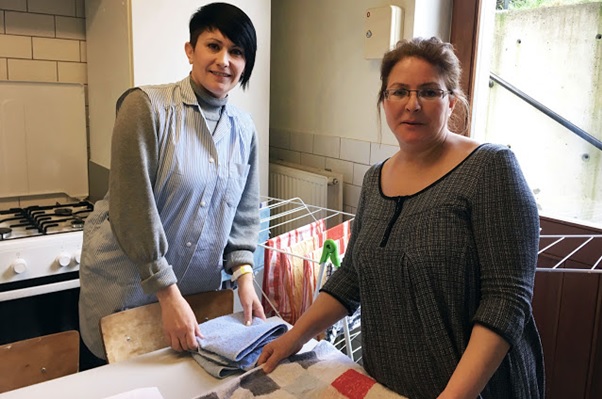
“We are used to being very close, we like to be by their side, talking over a cup of coffee - it’s part of the job,” says 39-year-old Jasmina Kajkush. “Now we have to take some distance. We put on masks, gloves. When we come back home, we put all the clothes in the washing machine and take a shower. We too have families and we also have to protect them.” Originally from Bosnia, she has been through worse. “I have survived two wars. We will make it through this.”
“Of course we are afraid,” adds colleague Nezha, 59, “but in the sector we work in, we have to put the elderly before ourselves. It’s our job. And we need to protect ourselves for them, so I walk a lot and don’t take public transport, if possible. The people we help often don’t have any social contact - they don’t see the reality, they only see it through television. It’s also our mission to reassure them of the normality outside, that life goes on and that we are there to protect them, as long are we are healthy.”
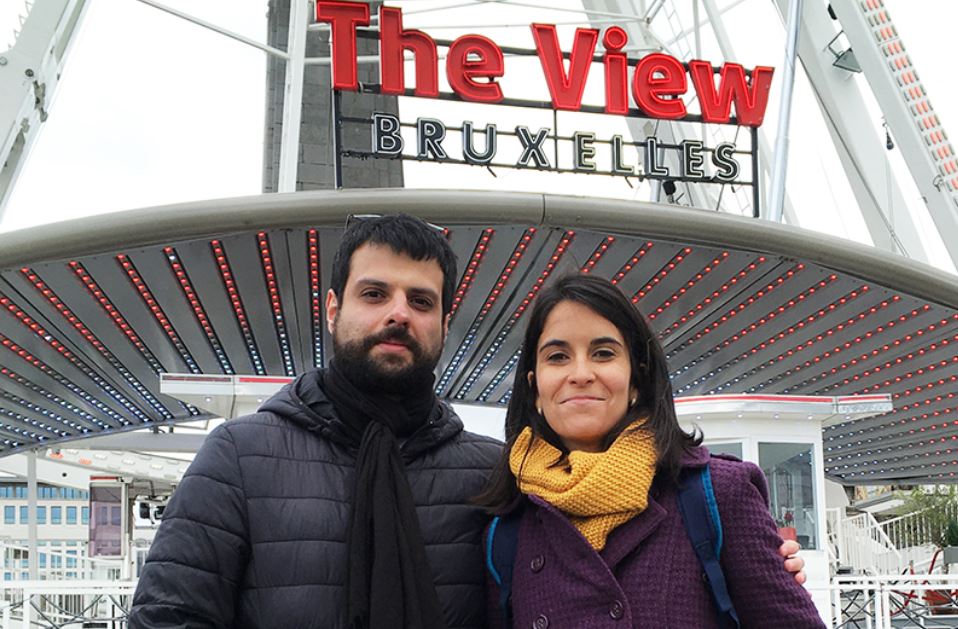
Just in front of the Justice Palace, enjoying the view of Brussels, some tourists are still to be found. Among them, a young couple. Paula Dinau and her boyfriend Alvaro Chicharo, planned a trip to Europe a long time ago. Originally from Brazil, they visited Amsterdam and Rotterdam before arriving in Brussels. They noticed that some people were wearing face masks and that there were fewer tourists than usual. They had initially thought only museums were shut - but then realised so were all the bars, cafes and restaurants. “I guess we’ll get some beer and drink it on the market square,” says Chicharo. “The situation in Brazil is getting worse, we are a little worried,” Dinau says. “We might be put in quarantine when we come back there from Europe.”
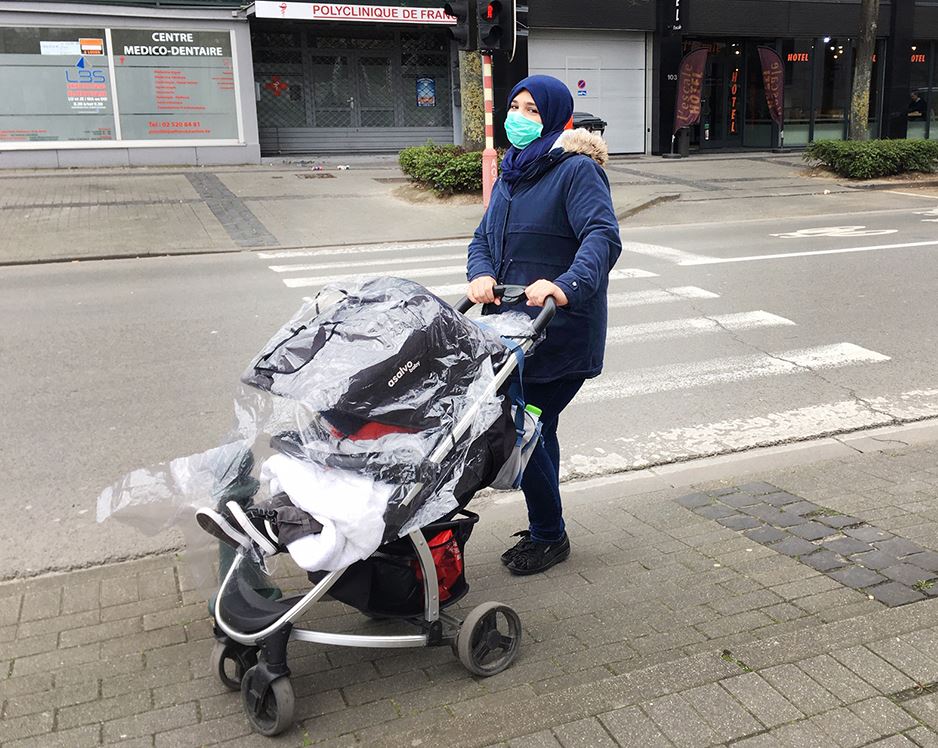
In an empty street in Anderlecht, Kadisha pushes her little son in a pushchair. She is the first person we have seen with a face mask. “It’s not to protect me, it’s to protect the others,” she says. “I still have to take public transport, but I am afraid.”

Belgium’s measures against the spreading of the virus include the shutdown of cafes, bars and restaurants. Takeaways and friteries can stay open. Mong Tangton, the owner of L’Epicerie, a small sandwich bar in Ixelles, is relieved he can stay open. “No one can sit here and have a meal any more - I closed the restaurant area,” he says. Tangton underlines the importance of state intervention to help the sector. “I work alone, but some don’t. They won’t be able to pay rent and their employees. The state has to help us here.” He hopes that his neighbours will show support for his little business, open since 1991.
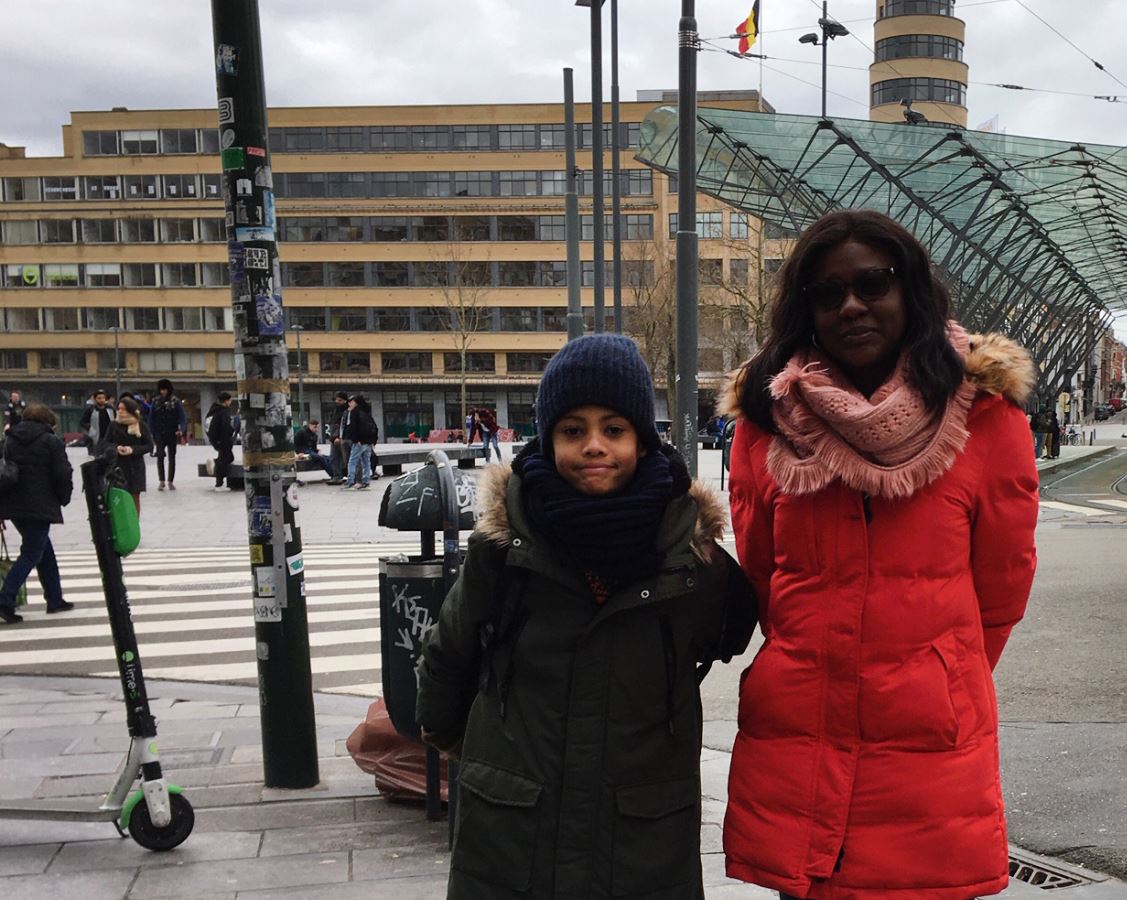
Picking up her nine-year-old son Luc from school near Flagey, Fatoumata Kassetoufa didn’t want to hug him as usual. They did a foot greeting instead. Asked about the school closure, Luc said he was happy about having a five-week holiday. “It’s awesome, but we still have some homework to do,” he says. Before he can get too excited, his mother makes clear that this won’t be like any holiday: “You won’t be allowed to go outside. This illness spreads fast, it’s better to stay at home.” She bought supplies this morning and will try to buy some masks for herself, her son and husband and wait it out. “I understand the gravity of the situation. The measures are not exaggerated at all. It’s just common sense,” she says before heading home.
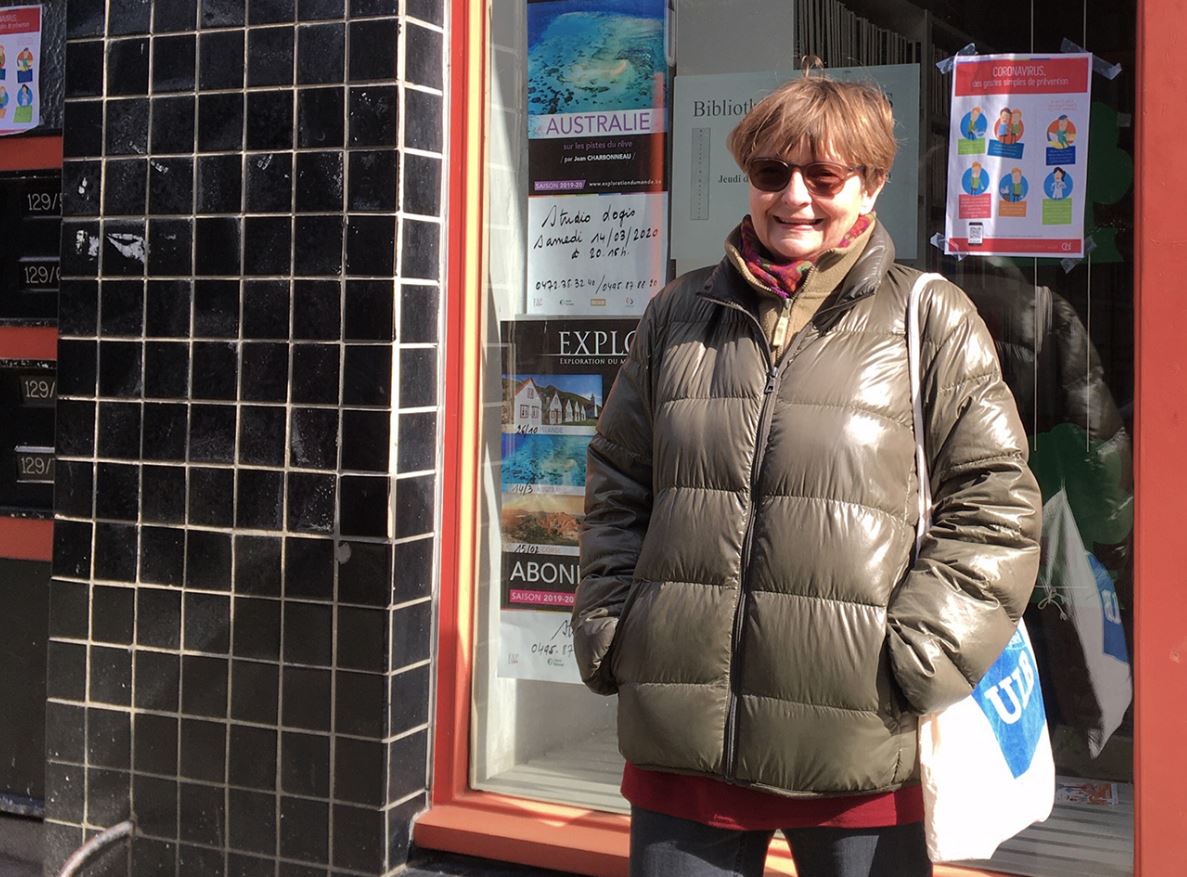
“I am not afraid for myself, but I have to be careful to protect my husband,” says 75-year-old Jaqueline Begon, who went for a walk and some grocery shopping. Her biggest regret right now is the closure of all cultural events. “I was the only person at Palace cinema on Thursday - people were already afraid,” she adds. An active member of local neighbourhood initiatives, she regrets that small social meetings are prohibited. “It’s more important than ever to support each other,” she adds. “Maybe I am just not fully aware of how dangerous it is. We will see in a week’s time.”

Saturday. The sun is shining and people are gathering at the popular food market at Flagey, which is open as usual. But the arrangement is different. The wine and oyster merchant is standing behind a little desk, handing out plates with no tables to eat at. Traders are nervous. Until Thursday evening, no one knew if they would be able to show up. No one knows if the market will be open next weekend. Those who sell food had to remove the tables and chairs. “Usually with this weather we would be full,” says 45-year-old Odette from Jamaica. She says her country’s food is about coming together, sharing a moment of food and company. “It’s a difficult situation, we are independent,” she says. “Hopefully the state will give us some tax relief to help us.”
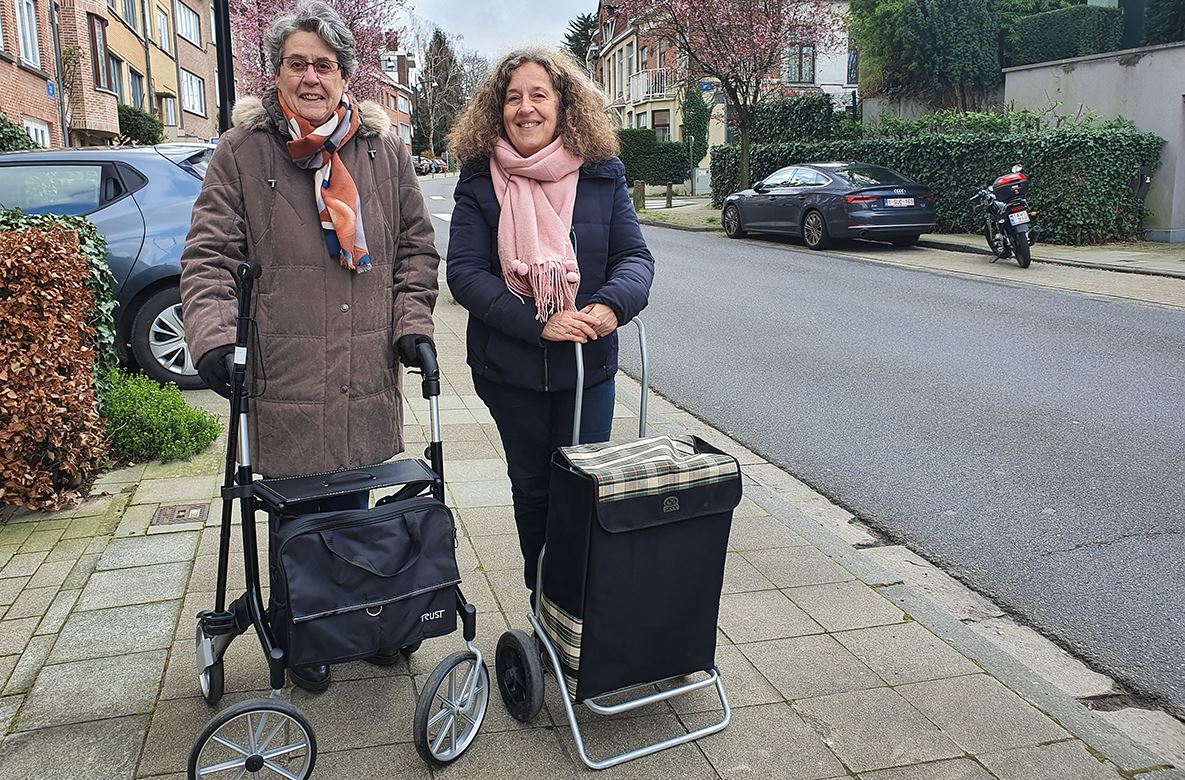
83-year-old Monique Debaillie was lucky. Her daughter Marie-Paule lives in the countryside and came to see her in order to help out with the grocery shopping. Marie-Paule is a teacher, and her school is now closed. “But I have to be present,” she says. “We will look after the children whose parents provide healthcare, work in the public sector and don’t have anyone besides grand parents to take of them.” For the moment, schools don’t act together: “Hopefully this coming week we will come to a coherent way of dealing with the situation,” she adds.
Living by herself, Debaillie is worried about the lack of social contact. She has email, but otherwise the internet is not an option for her to keep in touch. “I prefer to meet people for real, but for now, I’ll wait and count on my family to stay in touch,” she says.
Top photo: Benoît Doppagne/Belga. All other photos: Alice Latta



















